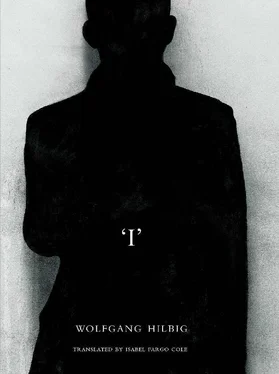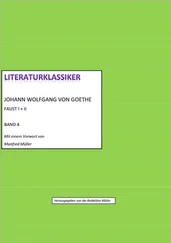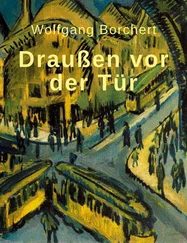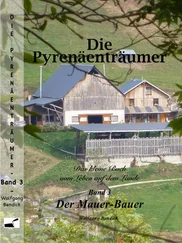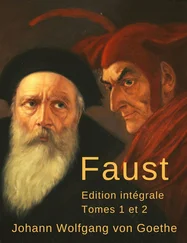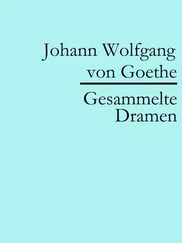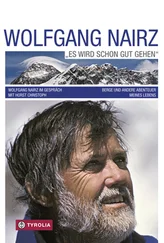I tell you, suddenly they’ll all get the idea that they’ve become dispensable, the men and women of the writing trade — and not just them. Exactly, that’s what we wanted to prevent! We made them all, and made them indispensable! You’re absolutely right that by doing that, we ultimately made ourselves indispensable too. . ha ha! (He laughed.) Just as indispensable as the poets!
(It was one of the usual rants the boss had spilt out before him, two or three years ago, one of those futuristic lectures he’d just never known what to make of. Time had rushed forward since then, and suddenly these words began to preoccupy him again; they preoccupied C. that whole summer as he trailed the student, and he felt as though his thoughts — the boss’ thoughts — followed her even across the border, as though she were shadowed still further by his explanations, by his boss’ explanations, in West Berlin territory.
Later that year. .
[ Allow me to jump ahead; time presses, forcing me to anticipate the further course of events .]
. . C. was abruptly cut short in this train of thought by a meeting with Major Feuerbach which lasted just minutes. Their reunion gave C. a proper scare; Feuerbach was sitting at the desk in C.’s flat, around noon, and typing something on the typewriter. — Don’t stare at me like a fool, he said, I just dropped in and I’ve got to type up a few sentences. — He pecked out a few more lines in the greatest of haste, pulled the sheet from the machine, folded it up and vanished.
From an unnamed source C. learnt — that winter — what had transpired. The Major had sent a letter to Cindy, Harry Falbe’s girlfriend, in A., since she’d gone into hiding somehow and couldn’t be found at home. The letter was typed on C.’s typewriter and signed with his name, with M. W.’s name; it requested that the recipient meet M. W. at an appropriate location — the proposal was the restaurant at the A. train station — as he had a message for her from Harry Falbe. To prove the letter’s authenticity, it contained the watch which Cindy had bequeathed to the sender and which Feuerbach had taken from him. She followed the request, went to the meeting place and was arrested.)
During my last encounter with Frau Falbe, one of the intimate ones — if some of the past encounters could be called that — the idea of the student intruded once again; for a long while it thrust itself in front of the woman’s body before me, only towards the end did the real sight prevail. — I had asked my landlady — it must have been towards the end of May — to sell me the red armchair that stood in my room, and she had agreed after some hesitation. I gave her the money, a purely symbolic sum she accepted after I’d refused to take the chair as a gift. I decided to spend the night in the room, so as to be on the spot the next day to transport it. It was too early to go to sleep, though; I decided to go into town again. . And then you won’t come any more! said Frau Falbe, standing at the door still as though she expected an explanation from me. — What gives you that idea? I asked in astonishment. I’ll be back right this evening. — I was just thinking, she said, I was thinking, something’s over when the armchair’s gone. .
Later I wandered around the city between the Dimitroffstrasse and Schönhauser Allee Stations. . I had only strayed so far from Frau Falbe because I was waiting for fatigue to set in. . ending up on side streets, and suddenly I spotted several people leaving a building where I’d often been before, and among them several of the Scene’s most familiar faces; dusk was already falling, I crossed the street so as not to be noticed, expecting the student at any moment. . and there she came out, she said goodbye to some of the others and walked away. I followed her — at perhaps too short a distance. On Schönhauser Allee she walked down towards the Dimitroffstrasse Station. I kept behind her, matching the pace of her steps, maintaining a distance of fifty to eighty yards, which was probably too much now. . Schönhauser Allee was quite busy still, the street lamps had blazed up, it was growing dark. Just before the station I was held up by a red light; she had already crossed the side street and was held up herself by the light which blocked the crosswalk to the station in the middle of the boulevard. My light turned green, I hesitated. . suddenly she turned around and came down the zebra crossing towards me; for a moment we stood eye to eye, just a few yards apart. I felt a touch of dizziness, void; I turned to the right and walked quickly down the pavement of the cross-street. . after a few moments I looked around and saw that she was following me, on the other side of the cross-street whose name I didn’t know. I walked still faster, turning right again at the next opportunity, and again just after that, no longer sure of the direction, but at last I had escaped her. .
After this incident I returned to my room at Frau Falbe’s and tried to overcome my confusion. — There was no doubt about it, I’d fled from her. She had turned the tables and suddenly become my pursuer!
I was an intelligent person and I belonged to an intelligent institution. . at least to think otherwise was absurd, indeed inadmissible— we were the hard core of intelligence, we were the sword and shield intelligence. . how could I still take this little incident as an omen? An omen of what. . I’d seen the sudden manifestation of a thing we didn’t believe in! A little episode that could grow. . that we couldn’t believe in, refused to believe in, mustn’t believe in, that, I made no mistake, was what had occurred that evening. And probably it had occurred because I believed in it. It was a sign that something in this country wasn’t going our way, and that the constellations were no longer as unambiguous as they looked.
It was a long time before I slept that night, casting about for portents that my suspicions (which had surfaced in me before) were founded — the occupied embassies. . the grassroots groups that kept springing up. . more and more young people seeking refuge in the churches. . the so-called punks and skins, louder and louder rows at sporting fields. . a devastating, barely concealed greed for hard currency, the all-pervasive wheeling and dealing with it. . the applications to emigrate, which had practically become a fad. — Despite it all we acted as though we’d come to terms with these circumstances, indeed as though we’d literally predicted them and were factoring them into everything we did. . the chiefs seemed no more nervous than usual, they’d always spoken of the keenest vigilance which was called for now more than ever : and they’d been preaching this now more than ever from time immemorial with unchanging urgency. . they’d preached it until this ‘now more than ever’ had become completely impossible to believe. — There were even things that gave the appearance of easing — the art and literature scene, always our special focus, seemed to have become veritably depoliticized. Feuerbach would get worked up about that, I could hear him still. . They’ve all got so wimpy and blasé, he yelled, we might as well let them all into the Writers’ Association! Or they could all go sit in the dive on Frankfurter, they’d fit right in there! They’re simply ignoring us. . they’re almost like we are! They want to take our jobs away. . one of these days we’ll have to take to the streets ourselves. . By the way, it’s got to the point where we need to fill up their meetings with more and more of our people just to make them look dangerous. Hey, doesn’t Sect. 20 look enough like a circus already? They want to get us shut down. . Hey, Cambert, how do you feel about getting a job as an insurance agent?
Читать дальше
